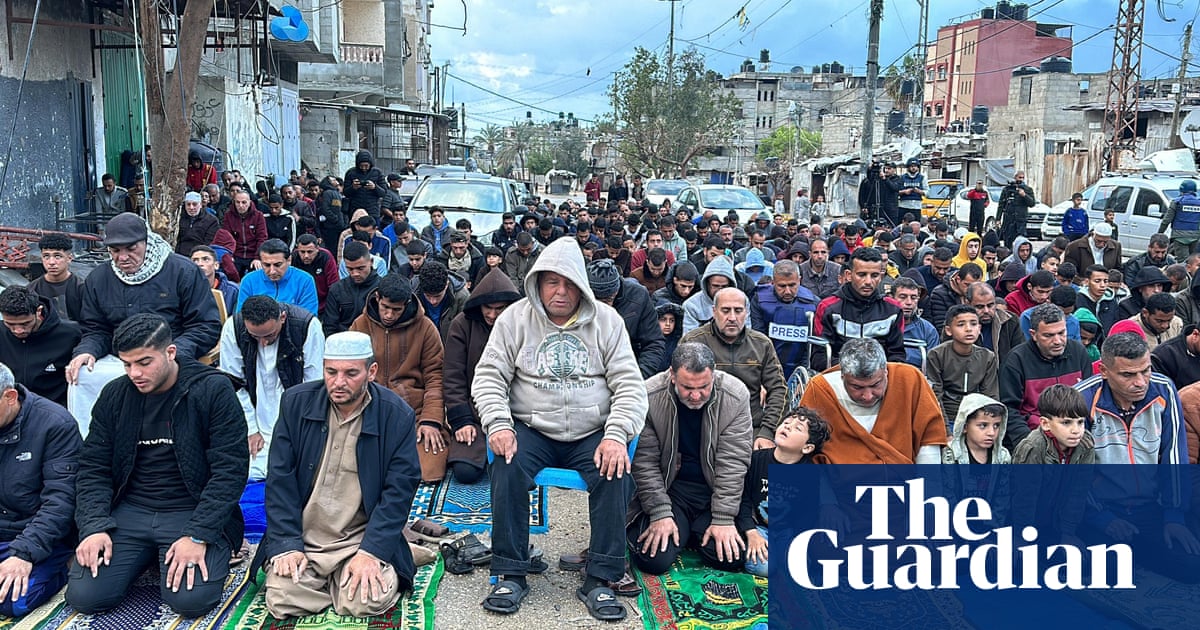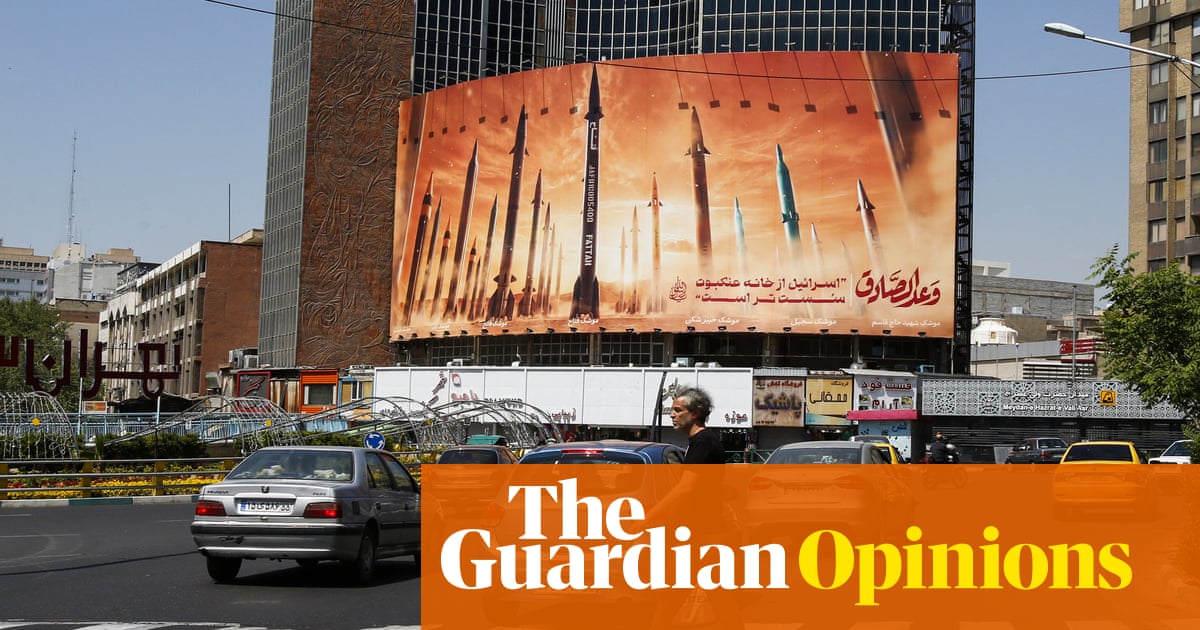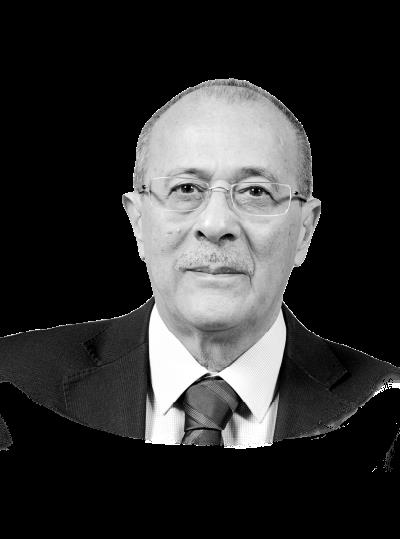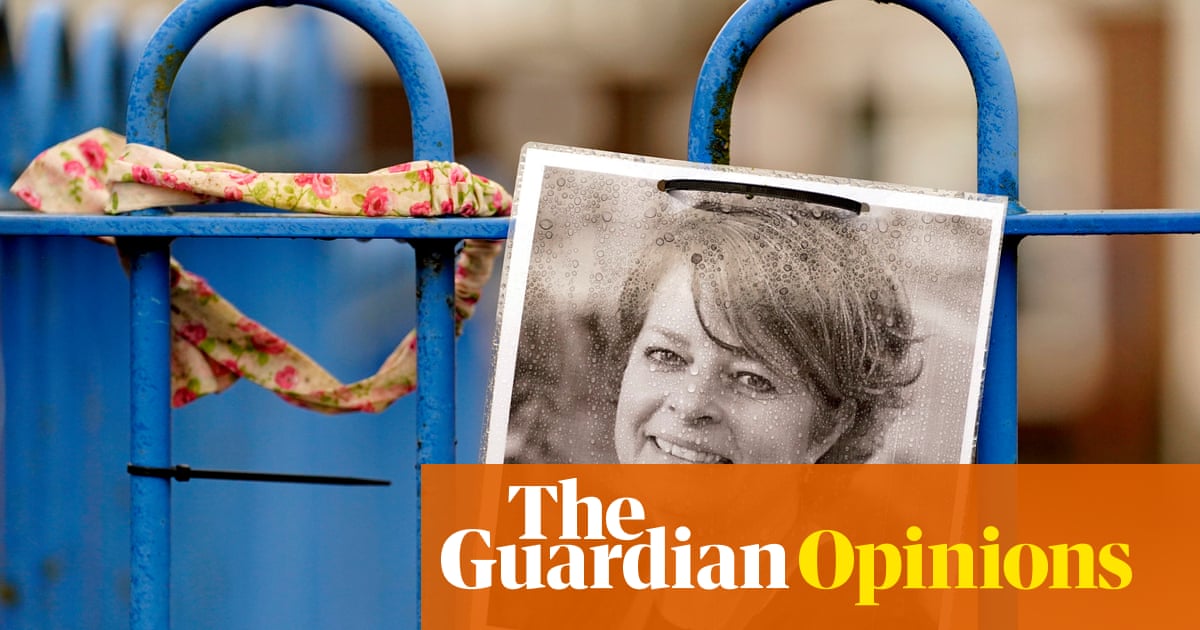
As cold, driving rain swept across the rubbish- and rubble-strewn streets of Rafah early on Wednesday morning, residents of the crowded city in the south of Gaza set out to celebrate the end of the holy month of Ramadan and the festival of Eid al-Fitr.
Prayers were held in mosques badly damaged in the continuing Israeli offensive, in the crowded schools where many have lived since being forced to flee ruined homes elsewhere in the territory, and on the sand among the rows of tents now home to hundreds of thousands.
By noon, the clouds had cleared but the spring sun brought little of the warmth usually associated with a day of faith, friendship and family.
“It doesn’t feel like Eid because of the lack of a beautiful atmosphere, and we are not buying clothes and sweets, or gathering together like we usually do,” said Jana Muhammad Sorour, a 12-year-old dispatched by her displaced family to sell homemade goods to neighbours in Rafah to raise much-needed funds.
“I hope that the war will stop and that I will get clothes and candy like other holidays, and most importantly, go home.”
For Islam Wahba, 35, who fled to Rafah after her home in Nuseirat was destroyed in an airstrike, the festival brought new grief. Since the war started six months ago, her husband and six relatives have been killed.
“When the prayers began, I started crying because it was my first Eid without my husband and so many of my family. When my children woke up, they began to look at pictures of their father and wish him a happy Eid. This is not Eid and cannot be Eid,” she said.
The war began on 7 October when Hamas launched a surprise attack into Israel, killing 1,200 people, mostly civilians, and taking 250 hostages. Since then, Israel’s military offensive has killed more than 33,000 in Gaza, mostly civilians, and created an acute humanitarian crisis.
Israeli military officials blame civilian casualties on Hamas, saying the organisation use civilians as “human shields”. Hamas denies the accusation.
Most of the enclave’s 2.3 million people are homeless. Hospitals have been destroyed and medicine is in short supply.
More than 1 million people are crammed into Rafah, on Gaza’s southern border with Egypt, having fled bombardments further north.
Basics in the city are in short supply. Many are surviving on flatbread cooked over wood fires or basic gas hobs, and tinned goods trucked in by humanitarian agencies from Egypt.
Sugar, fresh fruit and vegetables are rare and very expensive. Salt is almost unobtainable. Banking services have also collapsed, leaving many short of cash, even if they have funds.
Electricity was cut off by Israel at the beginning of the conflict, most of the sanitation and power infrastructure has been destroyed and the minimal amounts of fuel allowed into the territory are insufficient for running pumps or generators. Everywhere, donkey carts have replaced cars as the principal mode of transport.
Looming over all those trying to celebrate Eid in Rafah is the prospect of an imminent attack by Israeli forces. Israeli officials say Hamas leaders are based in the city along with four battalions of militants – the only substantial remaining fighting force of the Islamist organisation.
“Israeli troops are continuing to operate in the central Gaza Strip and killed a number of terrorists over the past day,” the Israeli Defense Forces said on Wednesday, while aircraft had “struck dozens of terror targets in the Gaza Strip, including military sites, launchers, tunnel shafts and infrastructure”.
Though Benjamin Netanyahu, Israel’s prime minister, has vowed repeatedly to continue to seek “total victory”, the US state department has warned Israel that “a full-scale military invasion of Rafah would have an enormously harmful effect” on civilians and “would ultimately hurt Israel’s security”.
More trucks bearing humanitarian aid have entered Gaza in recent days than for many months, but aid officials say much more is needed. Israel has been criticised repeatedly for blocking or slowing aid – charges it denies.
“Any aid is completely inadequate,” said Melanie Ward, chief executive of Medical Aid for Palestinians, who left Gaza after visiting Rafah on Wednesday morning.
“Everyone in Rafah is living in absolute desperation and fear of what is about to happen. There are thousands and thousands of people, so close together. There are no water supplies, lakes of raw sewage everywhere … and children sitting by the roadside with pans begging for food,” she added.
Israeli authorities said on Wednesday that they were “surging aid into Gaza, with over 1,200 trucks entering in three days”.
In Rafah, Abir Sakik, 40, who fled her home in Gaza City with her family and is now living in a tent, said she had no “ingredients for the cakes and sweets” she would usually make.
Instead she made cakes from crushed dates. “We want to rejoice despite all the blood, death and shelling. We are tired and weary … enough, enough of war and destruction,” she said.
Jalal Al Khalidi, 48, from Gaza city, said it was impossible to celebrate.
“I did not sleep at all last night thinking about what I will do, who will keep me company during day, who will pray the Eid prayer with me, with whom I will eat breakfast today, and with whom I will visit my relatives. The joy of Eid disappeared with the loss of my family.”
Asmaa Al Sayed, aged nine, described the festival as “a war holiday”.
“This means no joy, no holiday atmosphere, no sweets, no security, and, most importantly, no home,” she said.












